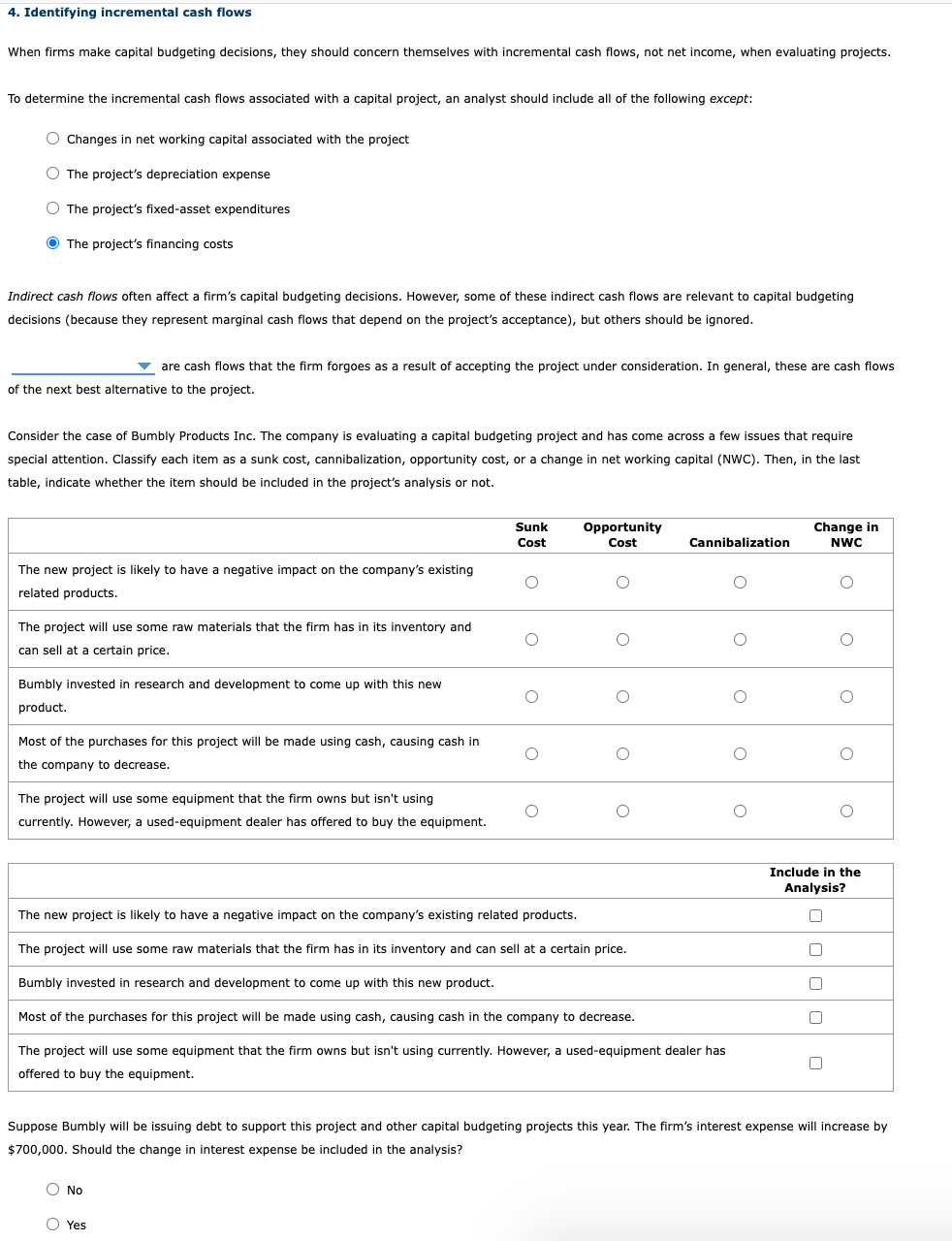Answered step by step
Verified Expert Solution
Question
1 Approved Answer
Drop Down - cannibalization/sunk costs/opportunity costs 4. Identifying incremental cash flows When firms make capital budgeting decisions, they should concern themselves with incremental cash flows,

Drop Down - cannibalization/sunk costs/opportunity costs
4. Identifying incremental cash flows When firms make capital budgeting decisions, they should concern themselves with incremental cash flows, not net income, when evaluating projects. To determine the incremental cash flows associated with a capital project, an analyst should include all of the following except: Changes in net working capital associated with the project The project's depreciation expense The project's fixed-asset expenditures The project's financing costs Indirect cash flows often affect a firm's capital budgeting decisions. However, some of these indirect cash flows are relevant to caping decisions (because they represent marginal cash flows that depend on the project's acceptance), but others should be ignored. are cash flows that the firm forgoes as a result of accepting the project under consideration. In general, these are cash flows of the next best alternative to the project. Consider the case of Bumbly Products Inc. The company is evaluating a capital budgeting project and has come across a few issues that require special attention. Classify each item as a sunk cost, cannibalization, opportunity cost, or a change in net working capital (NWC). Then, in the last table, indicate whether the item should be included in the project's analysis or not. Suppose Bumbly will be issuing debt to support this project and other capital budgeting projects this year. The firm's interest expense will increase by $700,000. Should the change in interest expense be included in the analysis? No Yes 4. Identifying incremental cash flows When firms make capital budgeting decisions, they should concern themselves with incremental cash flows, not net income, when evaluating projects. To determine the incremental cash flows associated with a capital project, an analyst should include all of the following except: Changes in net working capital associated with the project The project's depreciation expense The project's fixed-asset expenditures The project's financing costs Indirect cash flows often affect a firm's capital budgeting decisions. However, some of these indirect cash flows are relevant to caping decisions (because they represent marginal cash flows that depend on the project's acceptance), but others should be ignored. are cash flows that the firm forgoes as a result of accepting the project under consideration. In general, these are cash flows of the next best alternative to the project. Consider the case of Bumbly Products Inc. The company is evaluating a capital budgeting project and has come across a few issues that require special attention. Classify each item as a sunk cost, cannibalization, opportunity cost, or a change in net working capital (NWC). Then, in the last table, indicate whether the item should be included in the project's analysis or not. Suppose Bumbly will be issuing debt to support this project and other capital budgeting projects this year. The firm's interest expense will increase by $700,000. Should the change in interest expense be included in the analysis? No YesStep by Step Solution
There are 3 Steps involved in it
Step: 1

Get Instant Access to Expert-Tailored Solutions
See step-by-step solutions with expert insights and AI powered tools for academic success
Step: 2

Step: 3

Ace Your Homework with AI
Get the answers you need in no time with our AI-driven, step-by-step assistance
Get Started


